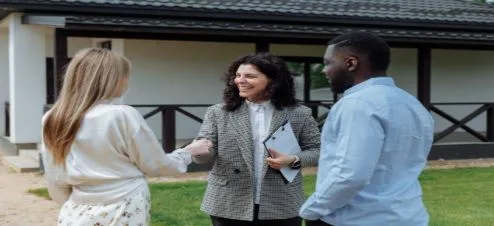What Can You Expect from Counselling Sessions?
Ever feel like your thoughts just won’t stop? You go to bed, and tomorrow’s worries are there. The past still nags you. You try to sort it out, but nothing clicks.
If that keeps happening, you might think about counselling. It can help—but what actually goes on in a session?
Let’s look at this in a detailed way. No sugarcoating, no textbook talk. Just the truth of what it’s like to sit with someone and begin.
At the Start, There’s Uncertainty
You walk in—or log in—with a head full of things that won’t sit still. Your counsellor may ask why you’re here, but there’s no perfect way to answer that. Some people talk right away. Some people look away. Others shift in their seats. Some stay quiet for a while. All of that is allowed.
There might be a few formal things first—forms, consent, policies—but they don’t last long. Once that’s done, the space becomes yours. And in that space, there’s no demand to be tidy or impressive.
You Don’t Have to Explain Everything
Counselling isn’t a spotlight. You don’t need the perfect words. You might not even know what to say. It’s more like sitting with someone who listens.
Someone who helps you hear your own thoughts more clearly. Some people speak in fragments. Some cry without knowing why. Some sit quietly until something unlocks.
You might talk about things you haven’t even said to yourself out loud. You might talk about lighter things at first.
Sometimes, the deeper stuff feels too hard to say right away. It takes time to feel safe. No one will rush you. You set the pace.
Emotion Doesn’t Follow a Schedule
You could laugh one session and feel shaken the next. Progress might come in quiet waves, not big breakthroughs. Sometimes, you leave feeling lighter. Other times, it stirs things up and you spend the evening untangling what came up.
That doesn’t mean something’s wrong. It means something moved.
You’ll Be Met, Not Judged
The counsellor isn’t there to judge or give quick answers. They sit with you, just as you are—tired, unsure, heavy, or even quiet.They might ask things that help you pause and look closer.
Not to dig too deep too fast, but to understand what you’re carrying. And sometimes, they’ll simply sit in silence.
No pressure. No need to explain everything at once. And slowly, you start hearing yourself more clearly.
You Might Get Tools—but Only If They Help
Not every session is just talking. You may be offered small practices—breathing techniques, ways to track moods, things to try between sessions. These aren’t rules. They’re invitations.
Some people use them. Others don’t. You choose what fits.
Counselling Is a Relationship, Not a Service
You’re not ordering solutions. You’re building something—bit by bit—with another person who’s trained to sit in hard places without running away. That relationship itself can be healing.
And when it feels right, you might talk about things that scare you. Or memories that sting. Not because someone says you should.
But because something inside you says—it’s okay now. You can.
And if you’re around expecting sessions from Counselling in Victoria BC, there are places like Neuralive Counselling & Neurofeedback.
They don’t rush you toward quick fixes. They focus on healing that goes deep. The kind that takes its time, and stays gentle
Some Sessions Might Feel Flat—and That’s Part of It
You won’t walk out of every session feeling better. That’s not a sign of failure. It’s part of the process. Some feelings take longer to surface. Some thoughts need silence to settle before they make sense.
You’re allowed to not know where it’s going.
There’s No Perfect Ending
At some point, things might feel a little clearer. Not perfect. But steadier. You might start to feel a bit more like yourself.
Not every day is easy, but things begin to make more sense. That’s usually when people think about ending counselling.
Not because everything is fixed—but because they feel ready to handle things differently.
Life shifts. You may return. Or not. The door doesn’t close—it just waits quietly in case you need it again.
In the End
Counselling gives you space to fall apart without falling alone. A place to sort through the noise, feel things fully, and maybe—for the first time in a while—breathe differently.
You don’t need to be sure. You don’t need a plan. You just need to be willing to show up.





![Top AI Development Companies [2025]](https://businesnewswire.com/wp-content/uploads/2025/08/az-594.webp)